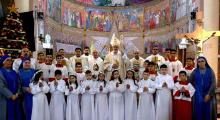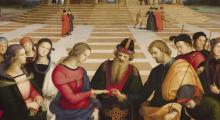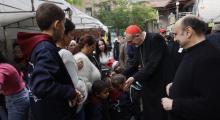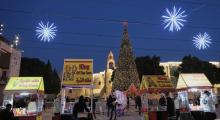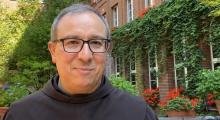Issued by the Catholic Center for Studies and Media - Jordan. Editor-in-chief Fr. Rif'at Bader - موقع أبونا abouna.org
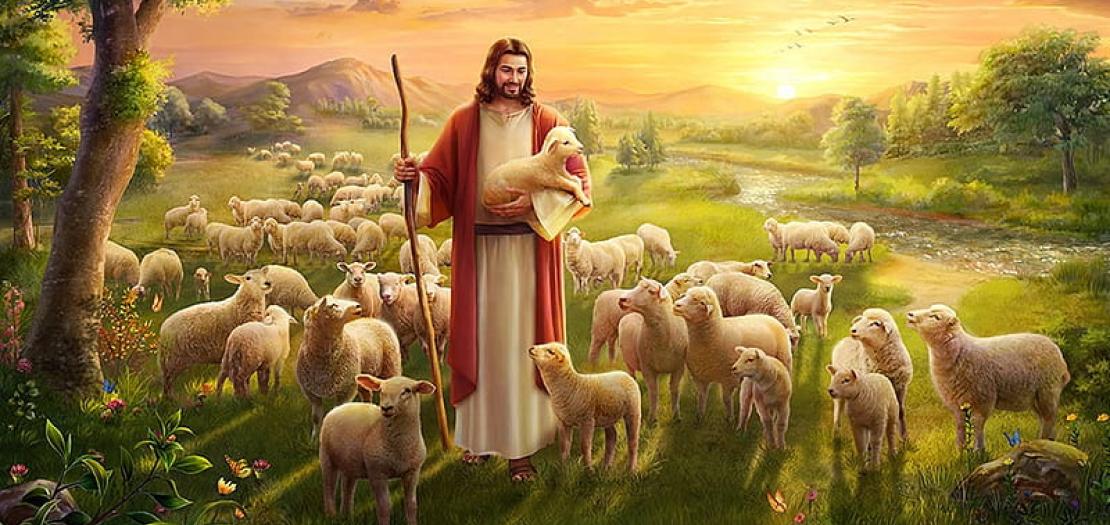
Following is the text of the meditation for the fourth Sunday of Easter by His Beatitude Cardinal Pierbattiata Pizzaballa, Latin Patriarch of Jerusalem, dated May 11, 2025:
Chapter 10 of John’s Gospel, records Jesus' discourse of the “good shepherd", which is divided into two parts. In the first, (John 10:1-18) Jesus uses the imagery of the gate, the shepherd, and speaks of himself as the one who passes through death to give freedom and life to his people.
There is then a narrative interlude, (John 10:22-24 before Jesus resumes and concludes the discourse. (John 10:25-30)
The passage we hear on this Fourth Sunday of Easter (John 10:27-30) is taken from the second part of the discourse, where we find the same imagery and expressions throughout the rest of the chapter, that of the sheep listening to the shepherd's voice, the shepherd knowing his sheep, and so on.
Still, we also find some deep insights, some exceptions, on which we pause and reflect.
We first reflect on a verb, which in these few verses returns twice, the verb “take out” or “snatch” (“no one will take them out of my hand.” (John 10:28, 29) Jesus says that no one can take the sheep from his hand, and that no one can take them from the hand of his Father.
This means that there is someone, or something, that is trying to take us out from the hand of the Lord, that tries to get in the way of this relationship, to impede it. The disciple’s relationship with the Lord has enemies, and these enemies in John’s Gospel have a specific name and countenance.
The first enemy is darkness, and night, that is, that place where man goes to hide himself in order not to encounter the Lord, not to let himself be brought into the truth. Jesus comes as light, but sometimes man loves his own darkness more, (Jn. 3:19) because he does not want to let himself be saved, does not want to let himself be loved.
A second enemy of man, in John, is deceit (cf. John 8:44): in Scripture, deceit is often associated with listening to a voice that is not God's. From the very beginning, the enemy of humankind, the father of lies, insinuates into man's ear a false image of God. And so, believing the word of the enemy, man is lost.
A third enemy is sin, which for John consists not in our small or great failings, but in our lack of faith, (cf. Jn. 16:8-9) in not welcoming the Lord into our lives.
And finally, the fourth enemy is death, a very present theme in John. It is not about physical death, but that of those who live an inauthentic life, those who do not live in full relationship with God. (cf. John 8:24)
All these “enemies” have power over man, the power to enslave, and have a grip over man.
And the tragedy is that man cannot get rid of them on his own: these enemies are stronger than we are.
Now, in today's passage Jesus affirms that all these things no longer have power over our lives, that nothing can take us out from our relationship with God anymore.
Nothing can tear us from the Father's hand because the gift that the Father has given us in his dead and risen Son is greater than all the evil that can be in the world.
It is an eternal gift that has passed through death, emerged victorious, and now has no more enemies. He can reach us anywhere, anytime.
Jesus, by dying for us, transformed evil, in all its aspects, into a further opportunity to encounter Him. He did not merely eliminate it, He did not drive it away: it would still have remained a threat, it would still have made us afraid. He did something more.
Darkness, lies, sin and death became a place where the Lord, dying for all, demonstrated His love for us sinners, where He spoke the final word of His mercy.
Not even those places of death, then, are inaccessible to God, and instead become that door of which Jesus had spoken at the beginning of his discourse, (John 10:7) a door of hope. (cf. Hos. 2:15)
We can still stray, get lost, go astray. But even when this happens, we still remain in the hand of the Father, in his good will.


